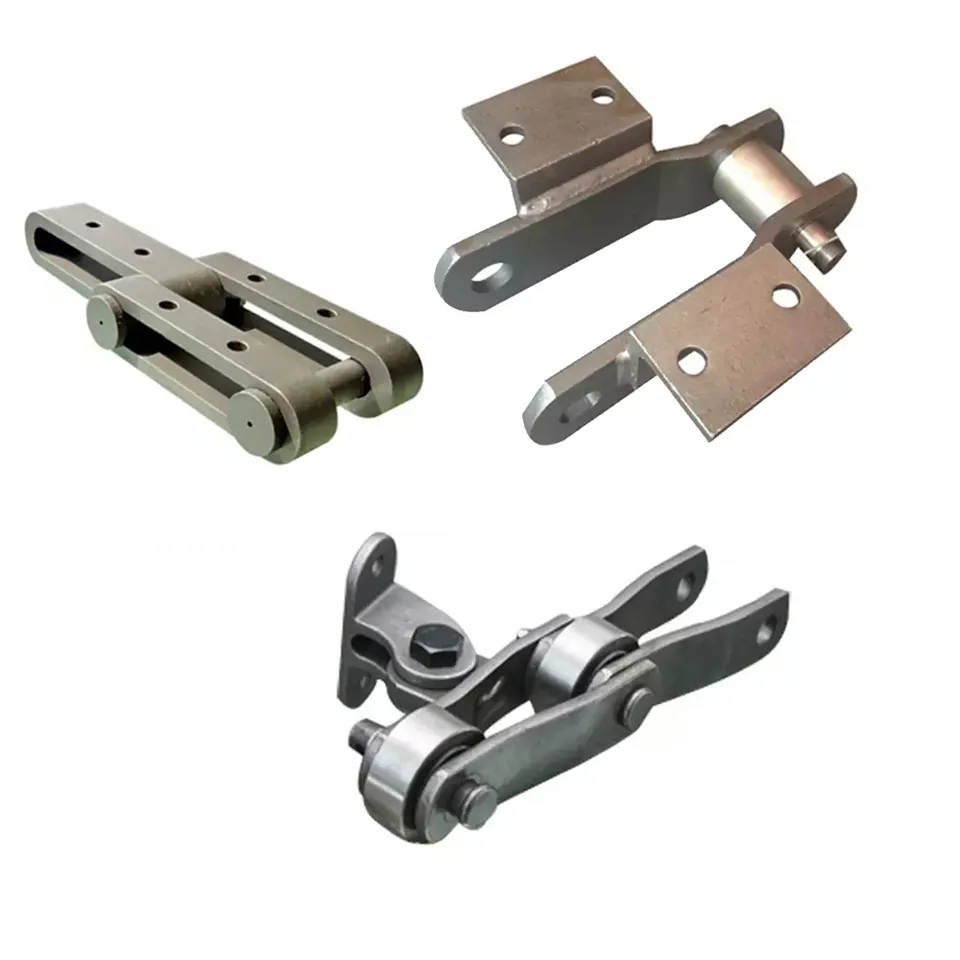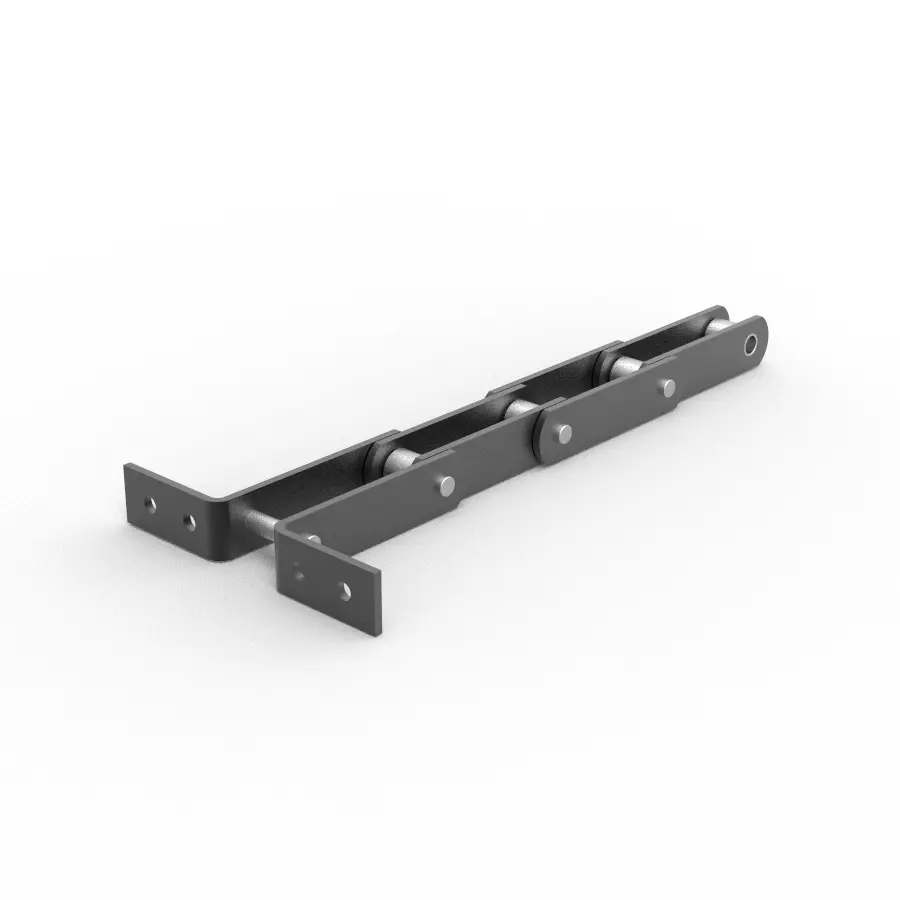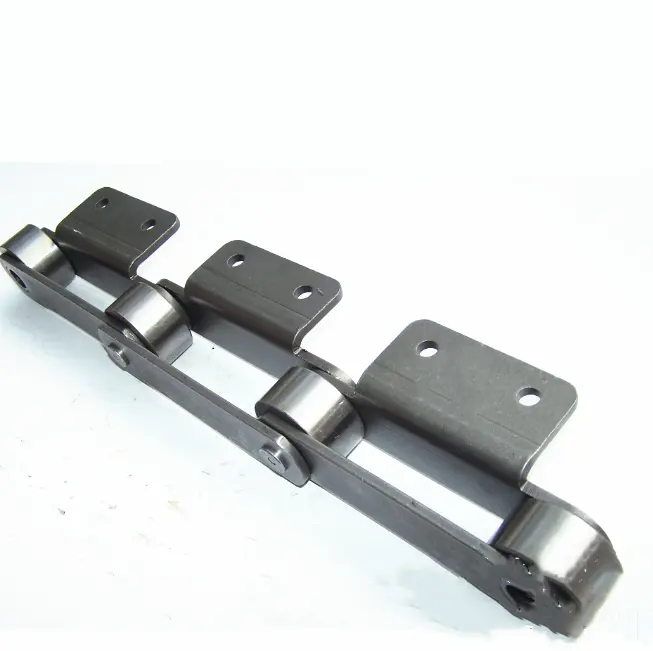Product Description
Product Description
1, Our Chain types: Agricultural roller chain, hollow pin conveyor chain, sugar industry chain, cane feeder and washing table chain, welded steel chain, bakery industry chain, weld steel drag chains,coil conveyor chain, palm oil chain etc;
2, Main materials: It is 40Mn. 40Cr, 45Mn alloy steel, SUS304, and POM Plastic for plates, 10#, 20#, 20CrMnMo, 30CrMnTi for pins and rollers;
3, Heat treatment: Carburizing, Austemper Stressing, nitro-caburizing harden etc;
4, Surface: Shot peening, black, blue or original;
Detailed Photos
For example of WH78, WH82, WH124, WH111, WH106, WH110, WH132, WH150, WH155
Product Parameters
Packaging & Shipping
plastic bag+carton+ OSB Case
Shipping way: these products will be shipped to your local port by sea, these also could be sent to your specific address by air.
Our Advantages
Our chains could be customized according to your actual order quantity, actual drawing and actual requirement. We have own chain process workshop, heat treatment workshop, process equipments and experienced designers.
(01)Assembled workshop
(02)Punching plate workshop
(03)Plate fabrication workshop
(04)Heat treatment workshop
(05)Shot peening workshop
(06) our warehouse
After Sales Service
Our products can be repaired or replaced the new parts with free cost in six months.
/* January 22, 2571 19:08:37 */!function(){function s(e,r){var a,o={};try{e&&e.split(“,”).forEach(function(e,t){e&&(a=e.match(/(.*?):(.*)$/))&&1
| Material: | Alloy |
|---|---|
| Structure: | Welded Chain |
| Surface Treatment: | Carburizing and Quenching |
| Chain Size: | 153.67mm |
| Feature: | Heat Resistant |
| Model: | Wh155 |
| Customization: |
Available
| Customized Request |
|---|
How do mill chains handle misalignment between sprockets in conveyor systems?
Mill chains are designed to handle moderate misalignment between sprockets in conveyor systems. Here’s how they manage misalignment effectively:
Flexible Construction:
Mill chains are built with a flexible construction that allows them to accommodate slight misalignment between sprockets. The chain links and pins have some degree of movement, which helps in absorbing minor misalignment without causing excessive wear or stress on the chain components.
Side Bow Effect:
Mill chains exhibit a phenomenon known as the “side bow” effect, which allows them to adapt to misalignment. The side bow effect refers to the lateral movement of the chain as it wraps around the sprocket. This lateral movement helps the chain adjust to the sprocket’s position, even if it is slightly misaligned.
Sprocket Tooth Design:
The shape of the sprocket teeth can also influence how well the chain handles misalignment. Sprockets with properly designed teeth, such as a standard roller chain sprocket, can aid in reducing the impact of misalignment on the chain’s performance.
Regular Maintenance:
To ensure that mill chains continue to handle misalignment effectively, regular maintenance is essential. Periodic inspections and lubrication can help identify and rectify any misalignment issues, preventing excessive wear and potential chain failure.
Limitations:
While mill chains can tolerate some misalignment, excessive misalignment should be avoided. Prolonged and severe misalignment can lead to accelerated wear and reduce the chain’s overall lifespan. In cases where misalignment is significant, it is crucial to address the root cause of the misalignment and make the necessary adjustments to prevent further chain damage.
Overall, mill chains’ ability to handle misalignment in conveyor systems makes them suitable for applications where minor sprocket misalignment can occur due to system variations or environmental factors.
Can mill chains be used in the glass and ceramics manufacturing industry?
Yes, mill chains can be used in the glass and ceramics manufacturing industry for various material handling applications. The glass and ceramics industry often involves the processing and movement of raw materials, finished products, and waste materials. Mill chains are well-suited for handling these tasks efficiently and reliably. Here’s how mill chains are utilized in the glass and ceramics manufacturing industry:
- Raw Material Handling: Mill chains are employed in the transportation of raw materials such as silica sand, limestone, feldspar, and other ingredients used in glass and ceramics production. These materials can be in bulk form or powdery/granular form, which mill chains can handle effectively.
- Kiln and Furnace Applications: In ceramics manufacturing, mill chains can be used to move ceramic wares through kilns and furnaces during firing processes. The chains are designed to withstand high temperatures and provide smooth and reliable conveying of the products through the heat treatment stages.
- Finished Product Handling: Mill chains are used in the movement of finished glass products, ceramic tiles, or other ceramic wares within the production facility, such as transferring them from one processing station to another or for packaging and storage purposes.
- Waste and Scrap Handling: The glass and ceramics manufacturing process generates waste and scrap materials that need to be removed efficiently. Mill chains with suitable attachments can be used to transport these waste materials to recycling or disposal areas.
Mill chains are known for their durability, strength, and ability to handle heavy loads, making them ideal for the demanding and often harsh operating conditions in the glass and ceramics industry. Regular maintenance and proper chain selection are essential to ensure optimal performance and longevity of the mill chains in these applications.
How do mill chains handle abrasive and harsh operating conditions?
Mill chains are designed to withstand abrasive and harsh operating conditions commonly found in various industrial applications. They are constructed using durable materials and specialized designs to ensure reliable performance in demanding environments. Here’s how mill chains handle such conditions:
1. Material Selection:
Mill chains are typically made from high-quality materials like alloy steel, which provides excellent strength and wear resistance. Some chains may also have specific coatings or surface treatments to enhance their durability.
2. Hardened Components:
To increase resistance to abrasion, the components of mill chains such as pins, bushings, and rollers are often hardened through heat treatment processes. This hardening ensures that the chain can endure repeated contact with abrasive materials without significant wear.
3. Specialized Design:
Mill chains may have special design features, such as extended pins or oversized rollers, to reduce contact pressure on the chain’s components. This design minimizes wear and prevents premature failure in abrasive environments.
4. Lubrication:
Proper lubrication is crucial for mill chains operating in harsh conditions. Lubricants reduce friction between moving parts, dissipate heat, and prevent abrasive particles from causing excessive wear.
5. Sealed Joints:
Some mill chains feature sealed joints or special protective covers to prevent abrasive materials from entering critical areas of the chain, further extending its service life.
6. Regular Maintenance:
Even with their robust design, mill chains still require regular maintenance. Scheduled inspections, cleaning, and lubrication help identify potential issues early and keep the chain operating optimally in abrasive and harsh conditions.
7. Proper Chain Tension:
Maintaining the correct chain tension is essential to avoid excessive wear. Proper tension ensures smooth operation and minimizes contact with abrasive materials.
Overall, mill chains’ ability to handle abrasive and harsh operating conditions is a result of their sturdy construction, appropriate material selection, and regular maintenance, making them reliable components in various industrial settings.
editor by CX 2024-03-30




